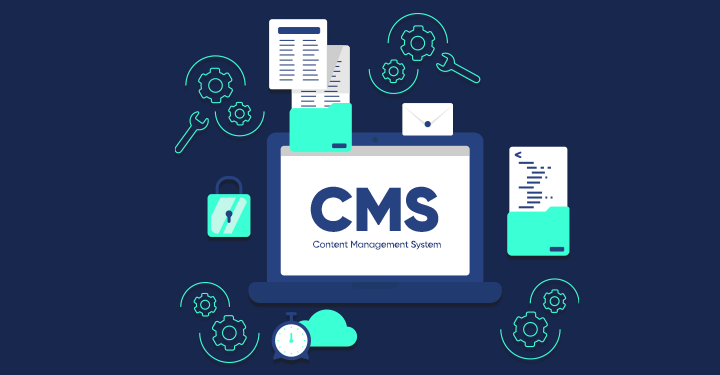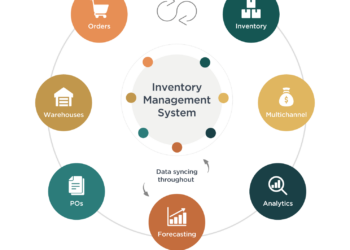As eCommerce continues to expand and the digital selling space becomes more crowded, with competition and offerings along similar paths, few things are more important than having access to an effective Content Management System (CMS) to properly run your storefront or digital marketplace. A CMS is a system through which you can control and manage your content needs from being able to add, edit, and remove items from your inventory to making SEO adjustments and integrating with other external applications that enhance the customer shopping experience. In the end, you’ll want to consider scalability, customization, ease of use, and integration to find the best fit for your needs as well as how to best build with ease using headless CMS. This article discusses the best CMS for online stores and marketplaces, breaking down what works best, what’s most flexible, and what’s most engaging.
H2: A User-Friendly CMS for Growing E-Commerce Brands
Shopify is one of the most common e-commerce CMSs on the market today, and it’s for a good reason; it has excellent usability, built-in marketing, and an all-inclusive app store. It caters to hosted small and medium enterprises with a lower technical understanding. For instance, Shopify has accessibility like no other. Merchants can fill their stores, track inventory, and establish credit card processing for payments without needing in-depth development capabilities.
Furthermore, there are hundreds of themes, with many being mobile responsive. For enterprises requiring further personalization, there’s Shopify Plus, which is more scalable and more flexible for higher volume enterprises. It enables checkout customization and easier use of automation and security features on larger ecommerce sites and larger ecommerce marketplaces. Furthermore, with integrations with all major payment processors, the capability to sell on social media platforms, and integrations with third-party applications, Shopify makes it simple for enterprises to broaden their selling avenues, automate marketing efforts, and facilitate better customer retention.
H2: A Powerful CMS for WordPress-Based Stores
WooCommerce is an open-source CMS developed specifically as a plugin for WordPress. Therefore, it’s a perfect solution for businesses already established with an online presence on the WordPress platform. It essentially allows complete freedom over design and content but also has the functionality to sell physical products, digital downloads, subscriptions, and memberships. The biggest advantage of WooCommerce is that there is no better system for customization. Merchants can always adjust from custom product pages to customized shopping experiences to personalized SEO/content strategies.
Businesses that adopt this self-hosted solution own their data and have a fully customized hosting solution of their choosing. In addition, the plugins and extensions available for WooCommerce are almost limitless; it’s easy to add payment processors, marketing automations, inventory management, etc. for those looking to add eCommerce to their eCommerce experience. This ease of access makes WooCommerce great for small businesses but also for enterprise solutions trying to keep everything on the same page with integrated eCommerce functionality. Thus, whenever a business looks for a cost-effective CMS solution with unlimited potential for customization, WooCommerce will always be in the running for one of the best eCommerce solutions ever.
H2: A Scalable CMS for Enterprise-Level E-Commerce
Adobe Commerce (Magento) is a customizable, scalable CMS that was previously called Magento and boasts some of the biggest brands and biggest eCommerce operations and marketplaces. It is known as one of the most powerful eCommerce platforms with extensive product management options, the ability to run multiple stores, and AI-enhanced personalization capabilities. The greatest aspect of Magento is flexibility and scalability. While other platforms might be better for smaller situations, Magento sits above in high-traffic, high-transaction, complicated product catalog, and international cross-border environments.
It effectively supports B2B and B2C endeavors when there are stringent needs to modify pricing, manage warehouse functions, or operate multiple storefronts through one backend. However, expect the steep learning curve, a necessary dev team for installation and support, which means this software is best for larger companies with larger budgets. Magento provides an all-inclusive CMS experience with e-commerce focused software, cloud hosting solutions, AI suggestions, and marketing solutions already integrated. Magento is one of the best CMS options for complex storefronts with a lot of moving pieces.
H2: A CMS Built for Fast-Growing E-Commerce Businesses
BigCommerce is a cloud-based e-commerce Content Management System (CMS) for the company that wants something scalable and powerful. BigCommerce has many enterprise-level options, but the setup is more complicated, like a self-hosted platform. So, if you’re on the market for an all-in-one e-commerce solution, this could be it. The most prominent feature of BigCommerce is its cross-channel selling ability. Companies can sell on Amazon and eBay as well as Instagram and Facebook and control everything from one dashboard.
In addition, the platform features great SEO functionalities, configurable APIs, and a decent app marketplace. Additionally, BigCommerce handles a lot of traffic effectively, too. Fast page load speed, PCI-compliant checkout, and auto-scaling ensure that this is the ideal platform for mid-market and enterprise level businesses to acquire enterprise solutions without tedious technical maintenance. Thus, as long as the user experience is flawless and integration and security fulfill enterprise system standards, BigCommerce is one of the top CMS systems for any growing e-commerce business.
H2: Headless CMS – The Future of E-Commerce Flexibility
If your brand wants to customize and syndicate content from here on out every way you can think of, this is the solution. A Headless CMS is different from a regular Content Management System because “headless” means the “head” (what the consumer sees) is separate from the back end (what the brand sees and uses to manage content); therefore, brands can push/syndicate content to websites and apps, digital assistants, IoT, etc., without a problem.
The Headless Ecommerce CMS solution allows integration with custom storefronts, machine-learning recommendation engines, third-party payment processors, faster load times, better security systems, and omnichannel coherence. For example, an enterprise apparel brand can create its own unique atmosphere with an interactive app, a company-owned frontend website, and social commerce nearly every consumer touchpoint it requires all from one easy-to-use backend. Therefore, as brands want more options, more flexibility in growth, and more avenues to reach consumers, a Headless CMS will be the go-to solution for growing ecommerce brands.
H2: Security and Compliance Considerations When Choosing a CMS
Security is essential when comparing a CMS to run an e-commerce shop or marketplace. E-commerce platforms always interface with customer data, credit card information, member details, and anything else that may be sensitive. Thus, an e-commerce CMS should ensure your site’s integrity and that of your customers, preventing hacked sites, breaches, and subsequent identity theft. Magento and BigCommerce provide enterprise-level security, including PCI compliance, SSL certification, transaction encryption, and fraud detection/integration. WooCommerce and Shopify are secure and rely on third-party providers, but the former requires additional plugins for maximum safety, and the latter requires annual managed hosting for maximum safety.
No matter where a company sells even across state lines compliance with GDPR, CCPA, and PCI DSS is essential. A Headless CMS solution allows for additional compliance and security as brands can determine their own security. For instance, they can apply only to secure payment integrations and create areas of the backend that require specific compliance thresholds. In the end, the more e-commerce brands prioritize compliance and security, the less vulnerable they’ll be to cybersecurity threats, and the more safeguarded customer data will be, ensuring longevity and trust with more ethically minded brands.
Conclusion
Selecting a content management system (CMS) for an e-commerce website or web store is one of the most important choices a business owner will ever make. The CMS will control what happens to the products behind the curtain, how quickly pages load, what the front-facing consumer expects, and how customizable the unique experience for a specific consumer can become. The optimal CMS will aid in better inventory management and inventory forecasting, efficient navigation, payment and checkout gateways, and future integrations. Owners can choose a CMS with built-in e-commerce functionality like Shopify, WooCommerce, Magento, and BigCommerce.
They can also opt for a Headless CMS. Regardless of the path they take, business owners need to evaluate potential for scaling, user-friendly nature vs. reliance on third-party support. They should also assess personalization capabilities for in-the-box and out-of-the-box solutions. This means that as e-commerce grows rapidly over the next few years, brands that rely on a CMS capable of future-proofing will have a leg up on the competition as it increases customer engagement, operational efficiencies, and future growth opportunities. For instance, customers in the future will want a CMS that has even greater out-of-the-box flexibility for easier cross-channel sales and customer ease using web and mobile/digital app access.
Furthermore, in the future, CMSs that feature built-in analytics, AI integrations, and automations will ensure peak functionality and profitability potential for any e-commerce site. Selecting the optimal CMS ensures that companies can maintain their e-commerce growth in a sustainable, affordable, flexible, scalable, and efficient operational management direction within a growing digitally driven market. The ultimate CMS places e-commerce firms on the cutting edge of customer satisfaction, retention, revenue generation, and resource allocation for internal efforts. With a solid, foolproof system established, the future of the digital storefront has nothing else to worry about.
Do you have a story in your community or an opinion to share with us: Email us at editorial@watchdoguganda.com












